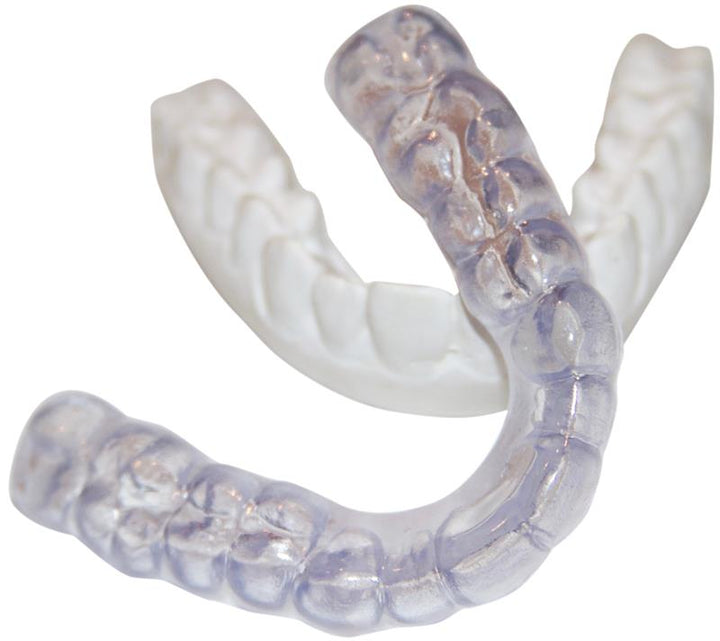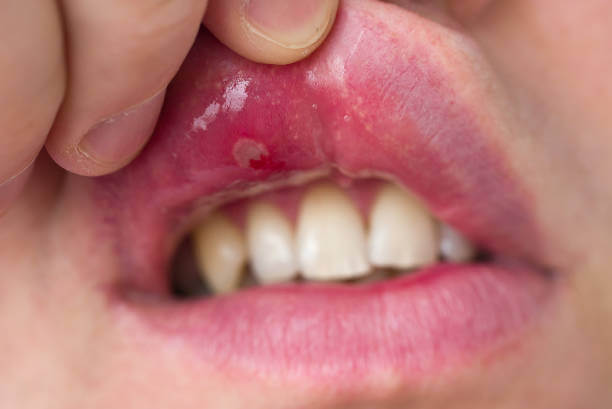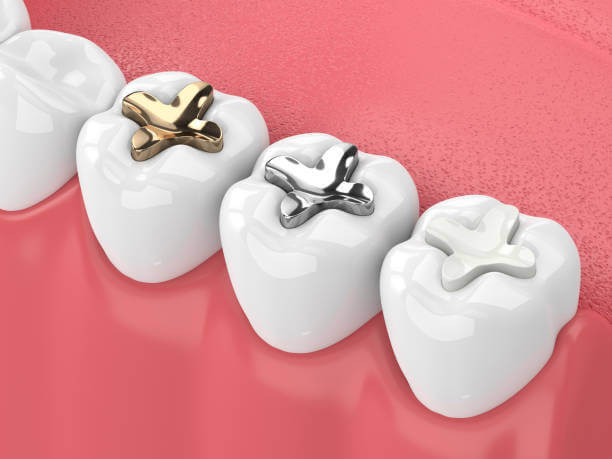Canker sores are common (and commonly confused with cold sores). Though both canker sores and cold sores occur around the mouth, they are different issues. Cold sores appear on the outside of the mouth—on the lips or neighboring skin—and are caused by a strain of the herpes virus. They generally appear when the immune system is slightly low due to stress, inadequate sleep, or a cold. Meanwhile, canker sores are lesions that occur inside the mouth and can be brought on by a number of different things.
One of those things is trauma/tissue damage, which can occur when dentures, braces, or other orthodonture irritate the inside of your mouth, when you burn the inside of your mouth with a hot drink or snack, or when you accidentally bite the inside of your mouth while eating or while grinding your teeth.
How to know if teeth grinding is the problem:
If you have frequent canker sores and you can’t pinpoint why they’re happening (i.e. they don’t seem related to any orthodonture and you don’t remember biting the inside of your mouth), you might have teeth grinding problem.
There will often be other signs of grinding that can help you identify whether bruxism (the fancy term for teeth grinding) is an issue for you. For instance, your teeth may show wear and tear from the friction of rubbing against each other, your gums may be frequently irritated, your jaw may feel tense or sore, and you may experience headaches or neck pain.
If you are unsure whether your teeth show any signs of wear, you can ask your dentist to take a look. It is important to spot signs of teeth grinding early in order to prevent further damage to your teeth and gums. You will want to start wearing a night guard to protect your teeth as well as take measures to reduce stress in your life, especially before you go to bed.
Stress is a significant contributor to teeth grinding —and it can contribute to the presence of canker sores. So, reducing stress in your everyday life will serve you well. Think about including a short wind-down routine at the end of your day, fitting in some daily exercise or stretching, or eliminating particularly stressful activities from your life.
What if something else is causing the canker sores?
Though tissue damage to the inside of the mouth is one of the most common causes of canker sores, it’s not the only one. You may also experience canker sores as a reaction to ingredients in some brands of toothpaste or oral rinses. In particular, sodium lauryl sulfate can trigger canker sores in some people.
Vitamin deficiencies are a more serious cause of canker sores. For instance, deficiencies in B12, zinc, folate (folic acid), or iron can all lead to canker sores. Most of these deficiencies include other symptoms as well, such as fatigue, tingling in the extremities, altered taste or smell, headaches, or decreased immunity. But you do not always experience all or even many of the warning symptoms. Sometimes, canker sores are the only sign something is wrong. So, if you suspect you are experiencing a vitamin deficiency, visit your doctor right away to get a blood test. Deficiencies can cause damage, especially over time, so it is important to address them immediately.
Canker sores can also be brought on by food sensitivities, especially to acidic foods, like citrus or coffee, or spicy foods. Some people even experience irritation after eating eggs, nuts, cheese, or chocolate. To identify food sensitivities, you can keep a journal to record what you eat each day, and then track any signs of a possible reaction—such as canker sores.
Other triggers for canker sores include the ones that can also lead to acne breakouts on your skin: emotional stress and hormonal shifts. And if your canker sores are coinciding with increased acid reflux, sore stomach, or other stomach irritation, you might want to get tested for helicobacter pylori. It’s a very common parasitic bacteria that causes most stomach ulcers and can contribute to canker sores.
More serious causes of canker sores:
Among the causes of canker sores are a few immune system-compromising diseases that are important to consider if your canker sores are one of a number of issues you are noticing. These diseases include celiac disease, ulcerative colitis, Behcet’s disease, and HIV/AIDS.
In the case of these more serious conditions, you will likely experience other physical symptoms beyond canker sores. So, it is important to pay attention to your body and see a physician if you know you are at risk of getting one of these illnesses or notice anything else that is troubling. TeethNightGuard's blog is a great place to visit for more information on oral health, sleep, and teeth grinding.
JOIN OUR NEWSLETTER! RECEIVE PROMOTIONS & COUPONS FOR CUSTOM DENTAL NIGHT GUARDS
INTERESTED IN BECOMING AN AFFILIATE OF TeethNightGuard.com?
Earn a 15% commission for simply sharing with your friends and family through email or social media such as Facebook, Reddit, or Twitter. Sign up and learn more here: https://www.teethnightguard.com/pages/register-affiliate-account
EXTRA DURABLE 3MM CUSTOM NIGHT GUARD - MAXIMUM DURABILITY AND COMFORT - MOST RECOMMENDED

$116.99
Item Number SWSPRO Manufacturer Sparkling White Smiles Dental Lab Rating Product Description Love this product? Share the product page link with Friends and Family. Simply copy the product page web address or this link: Custom Teeth Night Guard and post!… Read More
 We Offer Prompt Customer Service Through
We Offer Prompt Customer Service Through 











